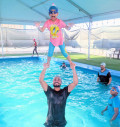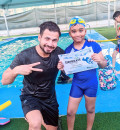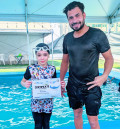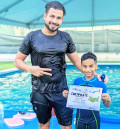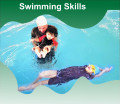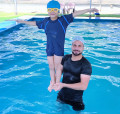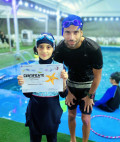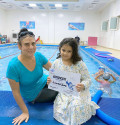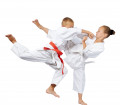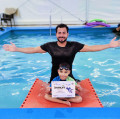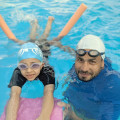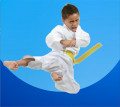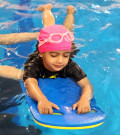
To execute the punch front effectively, it is crucial to focus on proper technique
2024-03-22 - karateUnderstanding the Punch Front
The punch front is a fundamental technique in karate that
involves delivering a powerful strike with the front hand while maintaining
balance and proper form. It is often used in combination with footwork to
create effective offensive sequences.
Importance of Proper Technique
To execute the punch front effectively, it is crucial to
focus on proper technique. This includes maintaining a stable stance, engaging
the core muscles for power, and extending the arm fully while keeping the wrist
straight. Emphasizing technique over sheer force ensures maximum impact and
minimizes the risk of injury.
Step-by-Step Guide to Learning the Punch Front
Stance: Begin in a proper karate stance, with feet
shoulder-width apart and knees slightly bent.
Guard Position: Keep the rear hand close to the face
for protection while extending the front hand slightly forward.
Execution: Rotate the hips and shoulders smoothly as
you extend the front arm forward in a punching motion.
Follow-Through: After the punch, quickly retract the
arm back to the guard position to prepare for further strikes or defensive
maneuvers.
Practice Drills: Repeat the punch front technique
slowly and deliberately, focusing on precision and control. Gradually increase
speed and intensity as proficiency improves.
Safety Precautions and Tips
Warm-Up Exercises
Before practicing karate techniques, it is essential for
kids to warm up their muscles to prevent injuries. Incorporate dynamic
stretches, jogging, and light calisthenics to prepare the body for physical
activity.
Practicing with Supervision
Ensure that children practice karate under the supervision
of a qualified instructor who can provide guidance, corrections, and feedback.
Supervision also ensures safety and prevents the development of bad habits or
improper technique.
Using Protective Gear
When practicing more advanced techniques like the punch
front, it is advisable for kids to wear appropriate protective gear such as
gloves and mouthguards. This minimizes the risk of injury and allows for more
confident execution of techniques.
Motivation and Encouragement
Setting Achievable Goals
Help children set realistic and achievable goals in their
karate training, whether it's mastering a specific technique or advancing to
the next belt rank. Breaking down larger goals into smaller milestones encourages
progress and maintains motivation.
Celebrating Progress
Recognize and celebrate the achievements and progress of
children in their karate journey. Whether it's earning a new belt or
demonstrating improved technique, positive reinforcement reinforces their
dedication and encourages continued effort.
Providing a Supportive Environment
Create a supportive and encouraging atmosphere in the dojo
where children feel comfortable expressing themselves and asking questions.
Building camaraderie among peers fosters a sense of community and belonging.
Conclusion
Karate offers numerous benefits for children, from physical
fitness and self-discipline to confidence building and self-defense skills.
Learning techniques like the punch front not only enhances their martial arts
proficiency but also instills valuable life lessons such as perseverance and
respect. By providing proper guidance, supervision, and encouragement, parents
and instructors can help children excel in their karate journey and thrive both
on and off the mat.







.jpg)















































